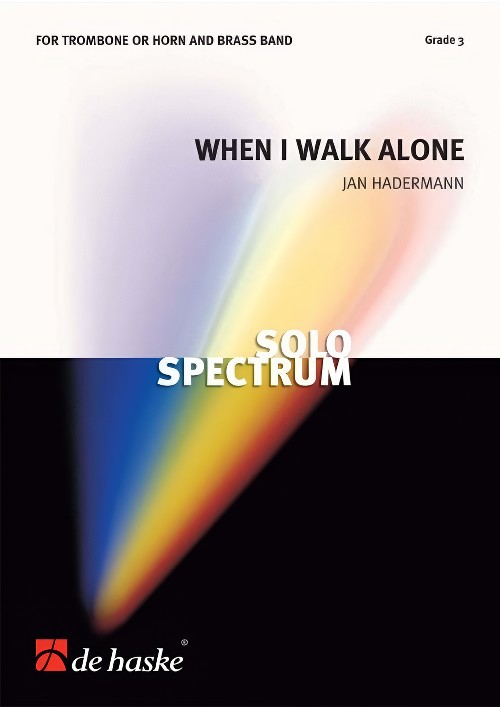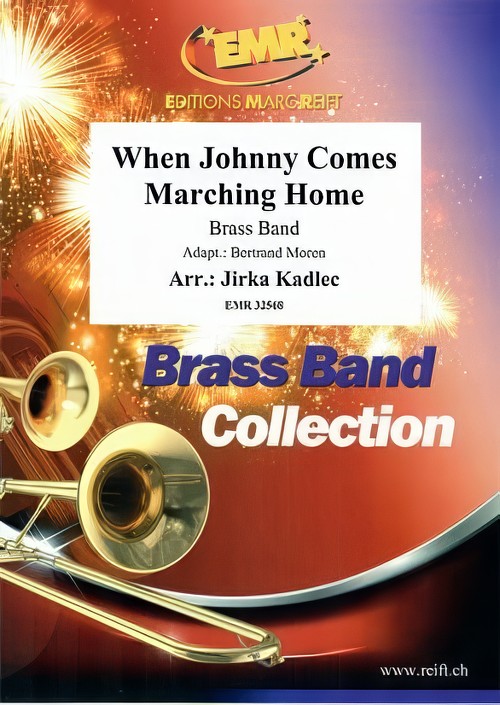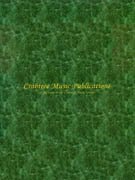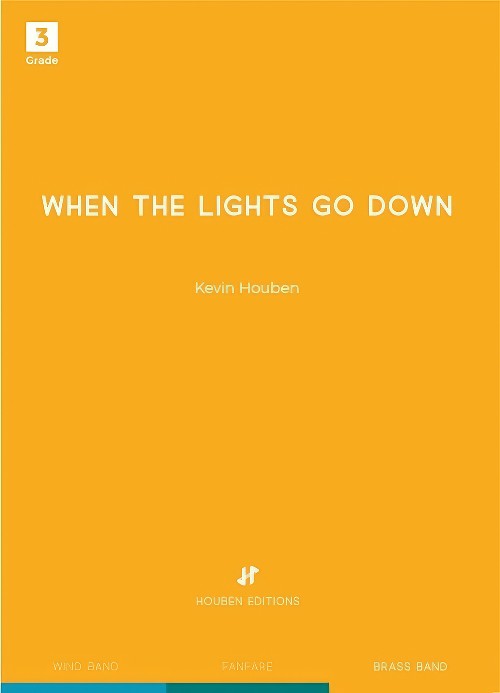-
 £50.90
£50.90WHEN I FALL IN LOVE (Brass Band) - Young, Victor - Fernie, Alan
Easy
Estimated dispatch 7-14 working days
-
 £54.99
£54.99When I Walk Alone (Trombone or Horn with Brass Band - Score and Parts) - Hadermann, Jan
Duration: 3:45
Estimated dispatch 7-14 working days
-
 £50.90
£50.90WHEN I'M 64 (Brass Band) - Lennon & McCartney - Fernie, Alan
Medium
Estimated dispatch 7-14 working days
-
 £95.00
£95.00When Johnny Comes Marching Home (Brass Band - Score and Parts) - Kadlec & Moren
Duration: 2.45
Estimated dispatch 7-14 working days
-
 £54.20
£54.20WHEN SAINTS GO MARCHING IN (Brass Band) - Richards, Goff
Medium
Estimated dispatch 7-14 working days
-
 £50.90
£50.90WHEN SHE LOVED ME (Flugel Horn Solo with Brass Band) - Newman, Randy - Smith, Sandy
from Toy Story 2. Grade: Easy
Estimated dispatch 7-14 working days
-
 £45.99
£45.99WHEN SHE LOVED ME (from Toy Story 2) (Flugelhorn/Brass Band) - Edelman, Randy - Duncan, Andrew
A beautiful melody taken from the hit film 'Toy Story 2' to create a wonderful feature for Flugelhorn. As performed by the Whitburn Band at the Brass in Concert Championships 2005. Suitable for all Bands.
Estimated dispatch 7-14 working days
-
 £33.00
£33.00 -
 £68.80
£68.80When the Lights Go Down (Brass Band - Score and Parts) - Houben, Kevin
Kevin Houben created with When the Lights Go Down, a wonderful chorale that can be a moment of reflection in any concert program. The resigned, magnificent melodies at the beginning of this composition slowly build up to a highlight with an increasing orchestration. The piece starts with a suggestive Adagio Meditativo, after which the main theme is immediately announced. A central bridge section takes the listener along through the different spheres at which the melodic and rhythmic drums embellish the chorale melodies. Thematic elements from the introduction brings the piece to a quiet and peaceful end. The sheer simplicity with which this work is written, makes it a resplendent, magnificent concert piece. 'When the Lights Go Down', refers to a moment when time stand still for a while, stillness within and around yourself.Duration: 9.00
Estimated dispatch 7-14 working days
-
 £49.95
£49.95WHEN THE SAINTS (Brass Band - Score and Parts) - Vinter, Gilbert
Please note: This is a facsimile edition for Brass Band. TTBB parts available separately
Estimated dispatch 7-14 working days
Searching for Wind Band Music? Visit the Wind Band Music Shop

Sign-up to our mailing list for the latest Brass Band music releases & special offers.
Tel: (07852) 519 763 | International: +44 785 251 9763 | Email: [email protected]
PLEASE NOTE: Due to a hard drive failure, our PC systems have been down since Friday 25th April. This means that orders placed before this have been processed as usual. Orders placed after this date are being processed as quickly as possible & we thank you for your understanding. During this period we will be slower to answer emails as we concentrate on restoring our systems fully to minimise delays in order shipping. Thank you for your patience with us as we endevour to get back to normal service as soon as possible.
Use the search box below to search for music for
Brass Band | Brass Ensemble | Junior Band | Flexi Band | Solos with Piano | Practice & Solo Books
Brass Band | Brass Ensemble | Junior Band | Flexi Band | Solos with Piano | Practice & Solo Books